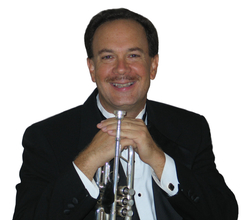 As the end of another concert season draws near, many ICSOM orchestras find themselves in the midst of negotiations. A few have already settled, while many others are in negotiations or scheduled to begin.
As the end of another concert season draws near, many ICSOM orchestras find themselves in the midst of negotiations. A few have already settled, while many others are in negotiations or scheduled to begin.
Before addressing these negotiations, I would like to reference the reasons behind ICSOM’s creation. It is important to remember that the right to form orchestra committees, to participate in negotiations, and to ratify proposed settlements is still a fairly recent ICSOM victory. Just a few short decades ago orchestral musicians were seldom permitted to be “at the table,” as their wages, benefits, job security, and other working conditions were often negotiated without their involvement or ratification.
ICSOM was created largely to ensure that musicians received and retained the right to meaningfully participate in negotiations. This fundamental right, one that now may easily be taken for granted, was achieved through the collective solidarity and determination of our ICSOM pioneers. Their perseverance demonstrated to orchestra managements and the AFM alike that orchestral musicians were united in their determination to conduct their own affairs. They believed, as we do now, that no one knows symphonic issues like symphonic musicians. Their collective struggle was often at great personal and professional sacrifice. By the end of the 1960s, though, ICSOM was finally recognized as a player conference within the AFM.
The 1979 AFM Convention authorized Federation work dues across the board on symphonic musician minimum scale wages. As a result, symphonic players alone carried 37% of the AFM budget. With the 2007 AFM Convention just a few short weeks away it is particularly interesting to note that this percentage now is much greater. The estimate for 2006 Federation work dues paid by symphonic musicians is actually closer to 55%, with the overwhelming majority coming from ICSOM musicians.
The figures for Federation symphonic work dues are important to consider when evaluating overall services and their value. ICSOM, for example, continues to provide many services on essentially a shoestring budget. The real value comes from the involvement and commitment of each orchestra with another and to ICSOM. Possibly the most important service ICSOM offers is the annual Conference, this year being held August 15–18. It is imperative that each ICSOM orchestra be represented. Much of what is gained from annual conferences comes from the formal and informal exchanges between delegates and Governing Board members.
Returning to the original focus, another important service ICSOM offers its members is the conference call network for negotiating orchestra committees. Recommenced in 2004, these calls have included delegates, chairs, and their committees. Attorneys and local presidents are also invited. We have been very fortunate to have our own ICSOM legal counsel, Lenny Leibowitz, join us. SSD Director Laura Brownell graciously agreed to join, as well, to offer additional expert advice and assistance.
Beginning in late January calls involving several orchestras have been held regularly. Included are Detroit, Kansas City, Minnesota, Nashville, North Carolina, San Antonio, and Saint Paul. Others will be joining as their negotiation schedules warrant. These calls prove very helpful in providing confidential environments to discuss and evaluate management and musician proposals and counter-strategies with colleagues facing similar challenges in their own negotiations. ICSOM Treasurer Michael Moore deserves special mention as he continues to stretch your dues dollars by locating cost efficient rates for electronic services including these conference calls.
One of ICSOM’s greatest accomplishments over the past forty-plus years is the ever-improving ability to share information quickly and comprehensively. Senza Sordino>, the newly redesigned ICSOM website, mailing lists Orchestra-L and Delegate-L, member-at-large interactions, the ICSOM Directory, recent on-site visits by Chairman Ridge, and annual ICSOM Conferences are just a few examples of key services that bring valuable information and support to our orchestras and members.
In closing, I would like to draw your attention to another terrific ICSOM resource: ICSOM; Forty Years of the International Conference of Symphony and Opera Musicians. Part of my normal preparation in writing these columns is to study this comprehensive publication in order to better understand current ICSOM issues by studying our history. Tom Hall, who served ICSOM as editor of Senza Sordino>, Governing Board Member-at-Large, and delegate (and who recently retired from the Chicago Symphony), authored the book in 2002. Delegates and orchestra committees alike should have copies within reach. New and veteran musicians alike are encouraged to read this terrific publication, easily one of the most accurate and informative references available about ICSOM’s history and its importance to our orchestras. Copies of this book have been distributed to all member orchestras at past Conferences. If your orchestra or committee would like more copies please contact me. Additional copies will also be available at this year’s ICSOM Conference.





